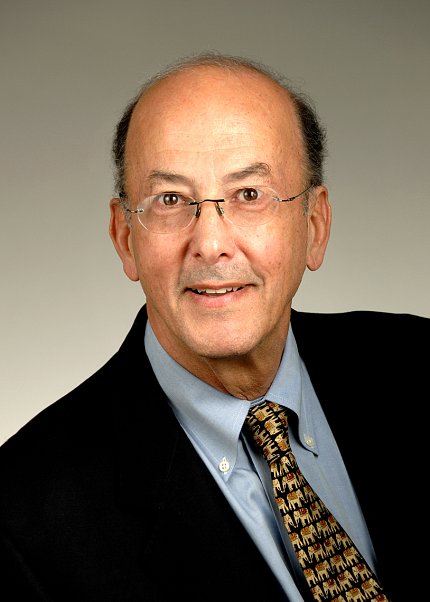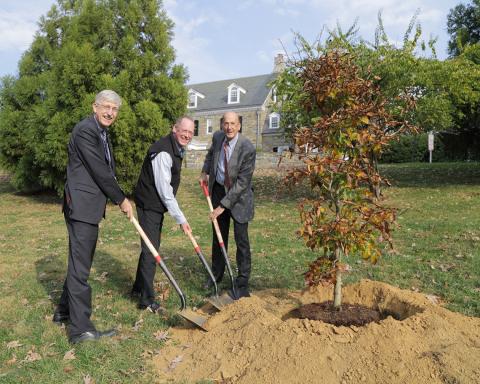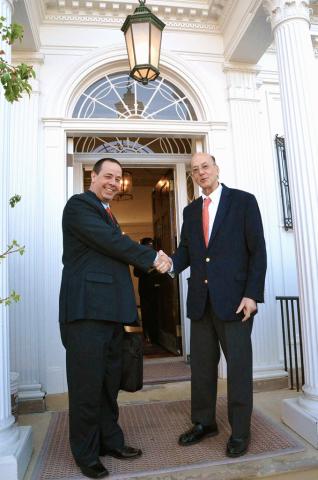FIC’s Director Glass Steps Down

Dr. Roger I. Glass stepped down Jan. 14 as director of the Fogarty International Center (FIC) and NIH associate director for international research. He plans to remain at Fogarty as senior scientist emeritus to focus on bolstering diversity and equity in the center’s programs, working with NIH leadership to expand engagement in global health and reinforcing existing partnerships abroad.
“I had the privilege of working closely with Roger Glass during my 12 years as NIH director,” said former NIH Director Dr. Francis Collins. “It never failed to amaze me that everyone we met, from Fogarty fellows to ministers of health, already knew Roger as a friend. He was the trusted and much-admired face of NIH for much of the world. He has left a permanent and powerful imprint on NIH’s global health contributions.”
A graduate of Harvard Medical School and Harvard School of Public Health, Glass’s professional life has included a 1977 stint as a medical officer at the Centers for Disease Control and Prevention (CDC). This led to a five-year appointment at the International Center for Diarrheal Disease Research in Bangladesh beginning in 1979.
After completing his doctorate at the University of Goteborg, he joined NIH’s Laboratory of Infectious Diseases in 1984, where he worked on the molecular biology of rotavirus. Two years later, Glass returned to the CDC to become chief of the viral gastroenteritis unit at the National Center for Infectious Diseases. He also held positions at Oxford University, the Sysin Institute in Moscow and the World Health Organization before NIH Director Dr. Elias Zerhouni named him FIC director on Mar. 31, 2006.

Photo: Bill Branson
During his 17-year tenure, Glass steered Fogarty toward building longstanding partnerships between U.S. and low- and middle-income country institutions, while supporting the career development of global health researchers and leaders at home and abroad.
“The foundation for all I’ve done here at Fogarty was laid at CDC,” said Glass. “There, I found that I needed to build people. Who wants to study viral diseases? You have to engage people’s intellect in the science with a mission that is important. At Fogarty, we’ve launched the global health research careers of nearly 1,500 fellows and scholars. Many have already done amazing things and all of them have another 20 or 30 years to grow.”
Fogarty programs have engaged all 27 institutes and centers at NIH and 88% of FIC grants are co-funded by other institutes. Researchers trained by Fogarty have enhanced global security through their involvement and leadership in responding to the epidemics of HIV, Ebola, Zika and Covid-19.
“We have no monopoly on good brains,” Glass said in farewell remarks to Fogarty staff. “My vision would be that, in a decade or so, the world will be fluid in how scientists conduct research, and we will all work together to solve problems. The most efficient way to solve the world’s problems is by working together and sharing publications and discovery science.”
Glass’s own scientific endeavors have primarily focused on rotavirus, the most common cause of severe diarrheal disease in infants and young children worldwide.
“When I began my career as an epidemiologist, I was struck by the devastating impact diarrhea had among so many children under five,” Glass noted. The World Health Organization estimated that in 2004 alone rotaviruses caused roughly 527,000 deaths, predominantly in developing countries.
During a span of more than three decades, Glass conducted field studies in India, Bangladesh, Brazil, Mexico, Israel, Russia, Vietnam and China, documenting the epidemiology and enormous global burden of rotavirus. He also worked on the development of vaccines and their protocols for use to help prevent disease.
Now, more than 70 national immunization programs include rotavirus vaccines, significantly reducing diarrheal hospitalizations and deaths and improving the health of millions of children worldwide.

Photo: Karin Zeitvogel
In honor of his work, Glass was presented with the 2015 Albert B. Sabin Gold Medal Award from the Sabin Vaccine Institute. Yet, Glass sees only the road ahead: “Today, 17 years after developing rotavirus vaccines, only half the children in the world are vaccinated. We’ve done better with Covid-19 than with rotavirus, which is still the number one killer of children.”
In his role as NIH associate director for international research, Glass established a productive collaboration with Collins. Together they assisted NIH in joining the Global Alliance for Chronic Diseases, partnered with PEPFAR to develop the Medical Education Partnership Initiative in Africa, helped launch the Consortium of Universities for Global Health, and, by means of the NIH Common Fund, supported Human Heredity and Health in Africa (H3Africa) and Harnessing Data Science for Health Discovery and Innovation in Africa.
Glass also helped bring Bill Gates to the NIH campus to deliver the David E. Barmes Global Health Lecture, which has led to annual partnership activities between NIH and the philanthropist’s own organization.
Dr. Anthony Fauci, former director of NIAID, stated, “Roger Glass has added an entirely new dimension to the ability of the NIH to interact at the global level in so many ways. One of the most important has been the highly successful training of international scientists who, directly and indirectly, have become true collaborators with NIH and even part of the NIH family.”
The cumulative work of Glass, who is a member of the National Academy of Medicine, includes co-authorship of more than 600 research papers and chapters.
While an emeritus scientist, he plans to spend more time with his wife, Dr. Barbara Stoll, the H. Wayne Hightower distinguished professor in the medical sciences and former dean of McGovern Medical School at the University of Texas Health Science Center at Houston, and his three children—Nina, Michael and Andy Glass.
